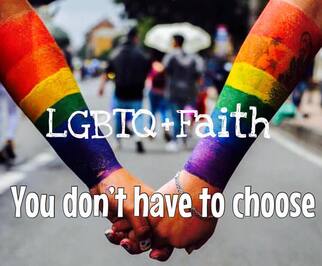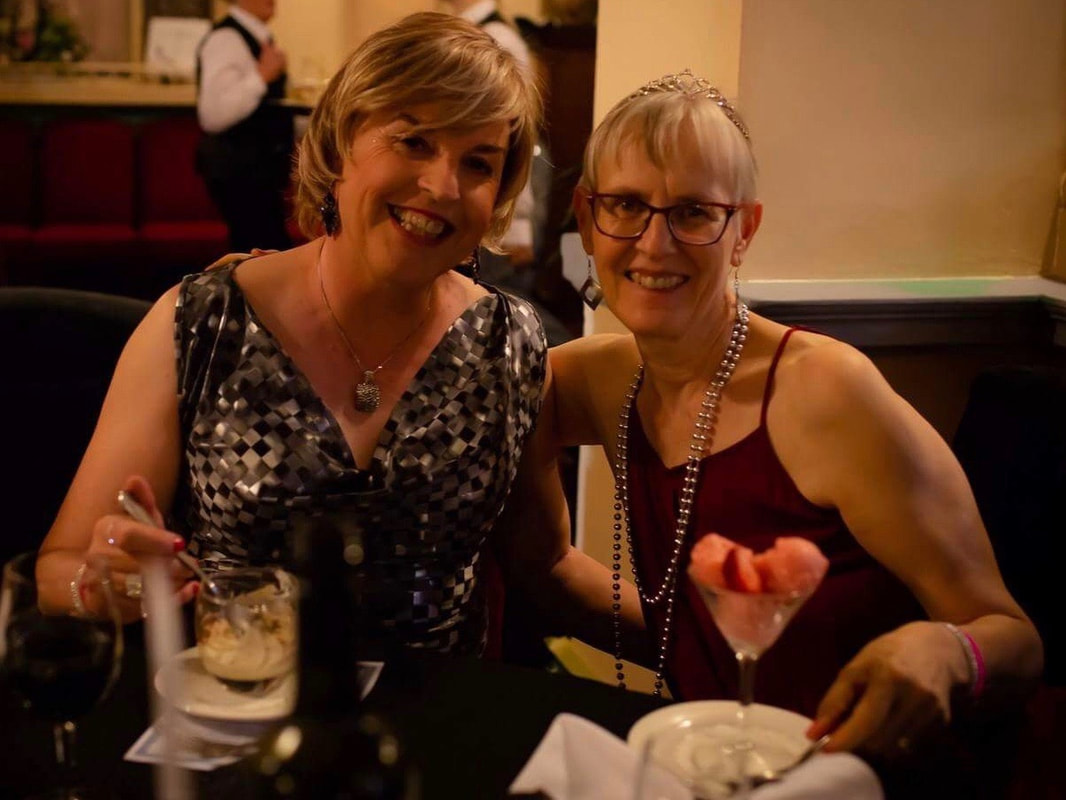 It has been a great delight, and a surprising honour, to be featured as one of the 'Dangerous Women' of Queensland in the recent podcast series produced by the State Library of Queensland. Each of the other episodes features remarkable women from different fields of life and experience - including the extraordinary Lilian Cooper who, with her life partner Josephine Bedford, were also queer pioneers associated with the Anglican Church in Brisbane. My conversation with the wonderful Holly Zwalf can be found here, and the full podcast series here. I am also grateful for a positive article in the Brisbane Times by Jocelyn Garcia, in which she highlights 'finding your roar' - part of what I hope I can convey to others (of whatever gender identity and/or journey): "I hope my story can encourage other people, not to be exactly like me, but whoever they want to be and have courage to take on difficult things because it is worthwhile in the end, Above all, it’s about taking courage and trusting the deep-down things of love and life in yourself." (full article here)
1 Comment
 I speak today as both a proud member of our LGBTIQA+ community, and also as a dedicated person of faith, indeed as an Anglican priest. I do so, because people like me are typically erased, our lives and voices ignored. Yet we queer people of faith do exist! - and we are increasingly seeking to be visible. For our very existence gives lie to the monstrous misuse of religion for political ends. We suffer particularly profoundly from religious discrimination. We do not want religious exemptions which hurt us and others, and betray the heart of who we are. We also know that the majority of our fellow Australians of faith agree with us, as we saw in that dreadful postal survey. So we’ve tried to lobby, spoken to Government inquiries, sought to be part of desperately needed change. Yet, as queer people of faith, our rights to religious expression are seldom recognised...  In times to come it will be extraordinary to imagine that some Christians insisted on married transgender people divorcing if they wished to claim their full identity. How scandalous a betrayal of God's love and Christ's teaching this is! It has been a long journey to address this in secular law in Australia and, sadly, the battle is not over in some religious quarters as well as in many parts of the world. Queensland, in which I now live, thankfully finally changed its law last night (with only four votes against, from the fringe Katter and One Nation parties). Hitherto, married transgender people have had to divorce if they changed their birth certificate to their true gender. I rejoice for friends and others who will directly benefit from this. For I know the pain this law has caused and have personally therefore lobbied hard for change. It will also be an encouragement for other necessary steps forward and for more religious people to come to their senses and renew their understanding both of marriage and of people of gender diversity. I write this with feeling, as well as after deep reflection on these subjects. For the status of my own marriage is under question in some slowly moving and blinkered parts of the Church, even in Australia itself. A leading member of the Anglican Diocese of Sydney for example has even gone so far as to challenge both my marriage and the ministry of my wife and I as 'living contrary' to the doctrine of Christ - see further transgender and the doctrine of marriage in Brisbane. Of course, in that instance, the aim is a distinctly political one: to attack my archbishop, my diocese and the mainstream pastoral approach and unfolding theology of the Anglican Communion as a whole. Yet such 'stop the world, we want to get off' thinking will not work. The ground is shifting in religious spheres too, as the actual lived experience of transgender people and their loved ones is gradually being revealed. Anglicans and other Christians across the world are responding, if sometimes hesitatingly, burdened as we are too much by our often exacting processes and the frenzied reactions of some. The Church of England for example, the church of my birth, has declared that it fully welcomes me and other transgender people, at every level of its life. As its leadership have expressed it (with my emphasis): The House of Bishops welcomes and encourages the unconditional affirmation of trans people, equally with all people,within the Church, the body of Christ,and rejoices in the diversity of that one body, into which all Christians have been baptized by one Spirit. My concern however is not with politics but with the love of God in people's lives. For, in some ways, in the face of such great odds, transgender people are still 'living miracles' even to exist at all - and some of us, tragically, do not make it. Our relationships are also always challenged, and sometimes shattered, by becoming more fully the people God has created and called us to be. The misery of rejection some of my gender diverse friends endure cuts me to the heart. So why would we not seek to strengthen those relationships which have not only worked through demanding change but have emerged stronger? In my case, and in others I know, my marriage is so much deeper for the full truth we live together. My wife could long see that we were suffering unnecessarily for years: 'where has Josephine gone?' she would say when I struggled to come to terms with myself. She knew, better than I, what I, and we together, needed. No marriage is 100% perfect, and I do not pretend to be a moral paragon in my relationships in the past or present, but it is insulting, as well as disappointing, when fellow Christians cannot recognise that my marriage, of 33 years to date, is not a rich example of God's sacramental love to the world (nb. that is my wife and I above in case such a picture is needed). In transitioning, I and others have not chosen (as has been alleged) 'to challenge the Biblical view of marriage' or to place my archbishop, or any one, 'in a difficult position'. Rather, we have simply sought to respond more fully, faithfully, with the whole of our being (as human beings, Christians, and priests), to the love of God for us. Of course, this means that we need to renew some aspects of received understanding. That however is the history of Christianity, as well as that of humanity as a whole, as we have developed our theology of marriage over 2000 years: working through inherited patriarchy and polygamy, rejecting women's subordination (and, for most of Christian history, lack of legal rights), developing compassion and legal recourse for those trapped in violent or unhealthy marriages, and embracing what is good in companionate relationship. Moving beyond the pressing past survival and scarcity preoccupations which informed obsessions with procreation and cis and hetero-normativity, our liturgies today increasingly reflect the wisdom we have gained and the love to which we aspire. There is a desperate resort of late to seeking proof-texts, such as Genesis 1.27 and Matthew 19.5, which may turn back the waters. However, apart from the inability of such texts to be bear the strain (even when isolated from their context and the weight of scholarship), this only confirms such Christianity as a latter day Canute, fruitlessly resisting a sea-change of love and affirmation. I therefore urge all people of faith similarly to affirm unconditionally the lives, marriages and loving relationships of transgender people. Rather than be anxious, never mind put stumbling blocks in our lives (or worst still 'conversion' therapies), why not work with us at providing appropriate pastoral resources to strengthen our relationships? We certainly need them. Listen, educate, and above all hear and affirm the love and faith we have to share. It is astonishing to me that Christians would not want to see healing and the renewal of such love for others. Marriage, like the sabbath, as Jesus might have said, is not made to subjugate the wondrous diversity of human life into a constricting bed of pain. Marriage, at least for Christians, is made for God's renewing of humanity. |
AuthorThe Revd Dr Jo Inkpin: Archives
March 2024
Categories
All
|
 RSS Feed
RSS Feed